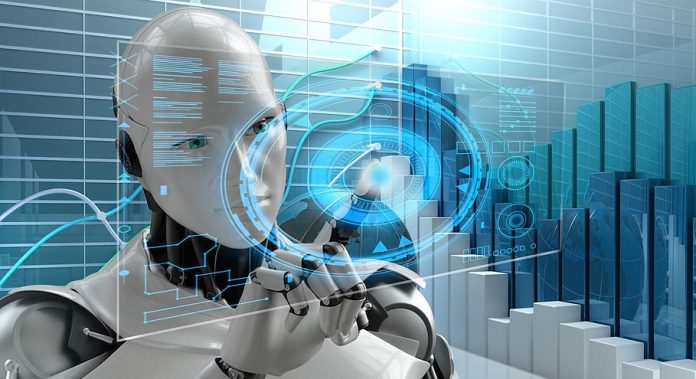Artificial intelligence has made incredible strides forward in recent years, and its impact is felt in various industries. From healthcare to finance, AI is changing how we live and work. And as AI continues to evolve, its impact on humanity will only grow. Here are some ways that AI is expected to impact the future of humanity:
1. Health and medicine: AI will help us better understand and treat diseases. For example, IBM Watson is being used to help doctors diagnose cancer and develop personalized treatment plans.
2. Self-driving cars are already here, and they’re getting better daily. AI is also being used to improve traffic management and prevent accidents.
3. Retail: AI is making shopping more convenient. For example, Amazon’s Alexa can track your shopping habits and order what you need before you run out.
4. Cyber security: The digital world is growing exponentially. And with that growth comes an increased risk of cyber threats. It is being used to detect and defend against those threats.
5. Agriculture: AI can automate wedding, watering, and harvesting tasks. It’s also being used to develop new crop varieties more resistant to disease, drought, and pests.
6. Healthcare: AI is helping doctors diagnose and treat patients. It’s also being used to create virtual, 3-D models of organs.
7. The gaming industry is already using AI and seeing it in movies and TV shows. We have the AI that is taking us to new worlds, creating the characters we love, and making the impossible possible.
8. Transportation: Autonomous vehicles are already on our roads, and they are improving every day.
9. Government: AI is used for everything from predicting natural disasters to tracking government spending.
10. Science and academia: Scientists are using it to discover new planets, develop new drugs and treatments, and more.
Hence, these are a few various areas where AI is putting its impact.
What is Artificial Intelligence?
In simple terms, artificial intelligence is when a machine completes tasks that typically require human intelligence, such as understanding natural language and recognizing objects. But the definition of AI is ever-evolving as technology advances.
Various types of AI exist. But there are some of the most common rule-based systems like decision trees(DT), artificial neural networks (ANN), and fuzzy (blurry) logic systems.
Rule-based systems follow if-then rules to make decisions. But decision trees (DT) use a series of yes or no questions to conclude. Genetic algorithms mimic the process of natural selection by randomly altering a set of solutions and then choosing the best ones. Artificial neural networks (ANN) are customised after the human brain. They can learn from data to make predictions or decisions.
Fuzzy(blurry or soft) logic systems deal with incomplete or imprecise information by using approximate reasoning. Opting for Artificial Intelligence Training can be an excellent choice to get more insights into AI and its real-time uses. It will enhance the existing skills to do much better.
The history of Artificial intelligence
The history of artificial intelligence is long and complicated, dating back to the early days of computing. In the 1950s, a group of scientists at Dartmouth College created one of the first AI programs, ELIZA. This program was designed to mimic human conversation, and it was surprisingly successful at doing so. However, ELIZA was not truly intelligent enough. It followed a set of rules that allowed it to generate some responses. These responses sounded like they could come from a natural person.
Despite this early success, AI research fell out of favour in the 1960s and 1970s. It was partly due to the difficulty of creating brilliant machines. But also because many people were sceptical about the potential apps of AI. However, research began to pick up again in the 1980s and 1990s, thanks partly to computer hardware and software advances. So, this is a brief history of AI.
The impact of Artificial Intelligence on the workforce
In recent years, there has been a growing interest in the potential of artificial intelligence to transform the workforce. While some believe AI will create new opportunities for workers, others are concerned about its impact on jobs.
There is no doubt that AI is already having an impact on the workforce. In many industries, it is being used to automate tasks and processes. It leads to increased efficiency, productivity, and cost savings. However, there is also concern that AI will lead to job losses as machines replace human workers.
It is still too early to say definitively how artificial intelligence will impact the workforce in the future. However, it will have a significant impact on how we work and also on the types of jobs that are available.
The ethical considerations of Artificial Intelligence
When it comes to artificial intelligence, several ethical considerations need to be taken into account. One of the major concerns is the potential for AI to be used for evil purposes. For example, you could use AI to create false news stories or autonomous weapons used in warfare.
Another ethical consideration is the impact of AI on jobs. As it continues to evolve and become more civilised, there is a risk that it could replace humans in several occupations. It could lead to mass unemployment and economic instability.
Finally, there are privacy concerns surrounding AI as data collected by AI systems become increasingly detailed and accurate. There is a risk that people’s personal information could be mishandled or even stolen.
These are just some ethical thoughts that must be considered when developing and using.
The Future of Artificial Intelligence
Artificial intelligence has become increasingly cultured and widespread in recent years. Today, AI is used in various fields, including healthcare, finance, manufacturing, farming, and more. As AI continues to evolve, its potential apps are only likely to grow.
There is one area where AI already has a significant impact in healthcare. In particular, it is used to develop new disease treatments and improve diagnosis rates.
For example, IBM’s Watson computer system has been used to help identify new cancer treatments. In the future, AI can also create personalized medicine explicitly tailored for each patient.
In the financial sector, AI develops better investment strategies and identifies fraudulent activity. For example, Goldman Sachs recently announced that it was using AI to help it trade more effectively.
Therefore, we can say that the future of AI is apparent and will impact everything. Getting skills in AI will also help to understand things much better.
Conclusion:
To conclude, artificial intelligence has a profound impact on the future of humanity. With its ability to process vast amounts of data and its potential to improve human cognitive abilities, AI will change how we live and work in the future. As we become more reliant on AI, it is essential to ensure that we maintain control over it and do not allow it to become a tool for oppression.
Thus, AI is having an impact on everything that human uses today. Many things are turning digital in an intelligent way. Already we see digital robots are making work simple and faster. Shortly, we can see a significant change in many global activities.
–
–


















